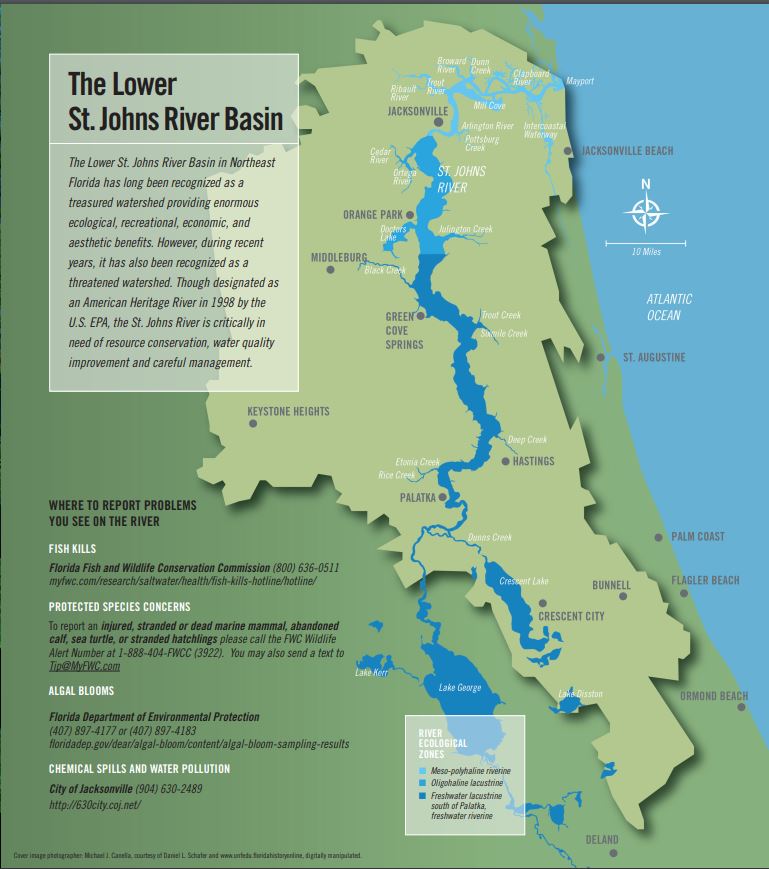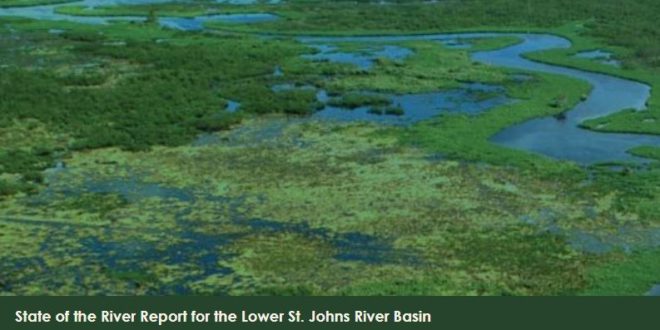A team of researchers, including scientists and experts from Jacksonville University, released the 12th annual State of the River Report today announcing a continued decline in water quality and increased levels of metal contaminants possibly caused by recent hurricanes.
The River Report — an analysis of the health of the Lower St. Johns River Basin funded by a grant from the Environmental Protection Board of the City of Jacksonville — addresses four main areas of river health: water quality, fisheries, aquatic life and contaminants. River Report team members from Jacksonville University, the University of North Florida (UNF), Florida Southern College, and West Chester University presented the findings today during the 2019 Environmental Symposium & Stormwater Education Workshop in Jacksonville.
The 2019 River Report indicates rising nitrogen and phosphorus levels continue to impact water quality in the river. The research team also found elevated levels of metal contaminants, particularly arsenic, cadmium, nickel, lead, and silver, which they link in part to recent hurricanes impacting Northeast Florida.
The full report is available online at www.sjrreport.com, along with a Guide for the General Public that outlines impacts to boating, fishing and swimming, and describes ways the public can help improve the river’s health.

“The Guide for the General Public is a new feature this year designed to empower people with helpful information and tips they can use in their daily lives,” said Dr. Gerry Pinto with Jacksonville University’s Marine Science Research Institute, who serves as Principal Investigator on the research team. “The St. Johns River is the centerpiece of our city, and people want to know what they do as individuals to help protect it.”
As an MSRI professor and researcher, Dr. Pinto has worked on the River Report since its inception more than a decade ago. The Environmental Protection Board of the City of Jacksonville and the UNF Environmental Center sponsor the annual Environmental Symposium to bring together community members and the agencies responsible for developing and implementing environmental policy.
 Wave Magazine Online Jacksonville University News Hub
Wave Magazine Online Jacksonville University News Hub
